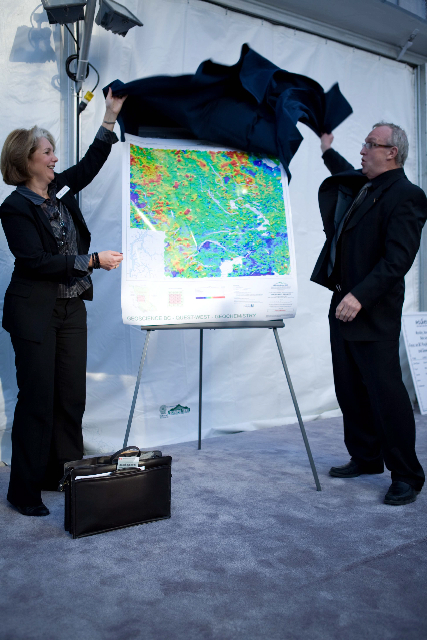Geoscience BC released new data today at Roundup 2009, in hopes of attracting investment and exploration in central British Columbia. Data released includes the QUEST-West airborne time domain electromagnetic survey and geochemical reanalysis of some 3,500 archived stream sediment samples collected in the region.
Lyn Anglin, president and CEO of Geoscience BC, was excited to provide industry with new mineralization information for a region of the province at the heart of the mountain pine beetle infestation. “This is a big airborne geophysics and ground geochemistry exploration-related geoscience project,” she said. “It’s all about the development of a better understanding of the geology of the area and what its mineral potential could be.”

Anglin said the data provides a basis for companies to decide where they’re going to spend their exploration dollars. “The more of this kind of info we can give them, the more it reduces their risk in what they invest in,” she said.
The QUEST-West project has generated new geoscience data covering some 40,000 square kilometres from Vanderhoof-Fort St James to Terrace, including the communities of Fraser Lake, Burns Lake, Granisle, Houston, Telkwa and Smithers. Anglin says the region is ripe with chunks of geology with interesting potential and little historical exploration.
Gordon Hogg, B.C.’s minister of state for mining, was in attendance at the announcement and excited to see provincial funding helping the beleaguered mining sector in areas of the province in desperate need of economic diversification. “We’re very proud that we’re leading the world in terms of geoscience work,” he said. “We have great optimism. With the downturns in the forest industry and the challenges that we have there, this is a chance to diversify and focus on the needs of local communities across the north.”
That optimism comes just one day before Finance Minister Jim Flaherty rises in the House to present a deficit budget, one perhaps as high as $34 billion this year, with a $30-billion deficit to follow in 2010. Still, Hogg hopes the mining industry will come out a winner. “We’re certainly working with the federal government, I met with [federal Minister of Natural Resources] Lisa Raitt, the premier has had a number of conversations with the prime minister. A big issue is permitting, the environment assessment process, and the duplication the industry goes through,” said Hogg.
He hopes for a reduction of regulatory and assessment issues that will make it easier for companies to explore in central B.C. Late last year, the Province created a new economic mining task force to help B.C.’s mining industry weather the global economic downturn. The Economic Task Force for Mining brought together industry leaders to monitor the economic situation and recommend measures to mitigate its effects on the mining industry. Hogg said the task force has forwarded its recommendations to the federal government and hopes some of them will be reflected in tomorrow’s federal budget.
Another partner in the project is the Northern Development Initiative Trust. Janine North is its CEO and, like Hogg, remains optimistic, even in today’s tough economic times. “Communities are reacting with absolutely open arms,” she said. “They’re seeing the exploration spending that occurred over the last field season as a result of the initial QUEST project. And they’re getting stronger engagement with these mining and exploration companies.”
North says the QUEST-West project is as important an investment as a new road or airport for remote B.C. communities. “It’s another piece of infrastructure and it’s public and it will result in additional investment in central and northern B.C.,” she said. “It’s a piece of knowledge infrastructure.”
The project also includes results from an airborne gravity survey and analysis of new geochemical samples collected from lakes and streams in the region. The full data set and more details on the project are available online at www.geoscienceBC.com.



